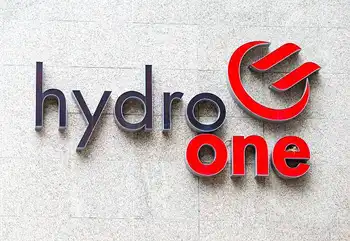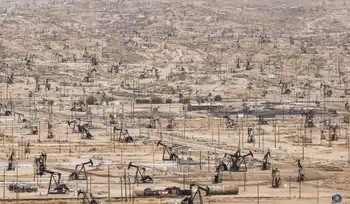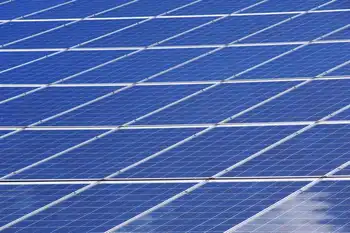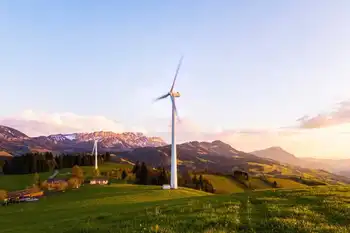OttawaÂ’s carbon plan jumps gun
By Toronto Star
CSA Z462 Arc Flash Training - Electrical Safety Essentials
Our customized live online or in‑person group training can be delivered to your staff at your location.

- Live Online
- 6 hours Instructor-led
- Group Training Available
"We need an independent assessment on something of this magnitude," said Ken Ogilvie, head of Pollution Probe.
Green Leader Elizabeth May said the Tories are relying on the promise of carbon sequestration as if it were a "future magic silver bullet."
Ogilvie and May were commenting on a federal plan to get Canadian industry to start pumping its pollutants deep into the ground as part of the effort to fight climate change.
The Conservative plan to cut greenhouse gas emissions weighs heavily on Alberta's oil sands and promises to put an end to "dirty coal-fired power plants" by 2012. Oil sands projects launched in 2012 or later must either capture and store emissions in underground rock formations or find another method of cutting the equivalent greenhouse gases.
Environment Canada projects that its regulations on industry, the source of half the country's emissions, will cut greenhouse gases by 165 megatonnes. Combined with other federal and provincial measures, the department estimates Canada will have cut its emissions to 21 per cent below 2006 levels by 2020.
"Today we're coming forward with the details to help us get the job done," Environment Minister John Baird said. "Industry is going to do their part and we've got a series of other initiatives that we're committed to. We will deliver on the 20 per cent absolute reduction."
Ogilvie urged caution.
"We need an independent assessment on something of this magnitude. You wouldn't allow someone to bury radioactive waste without an independent assessment, but here we're also playing with a very large store of carbon. We just don't declare things safe unless they're proven to be safe."
Baird's announcement is actually weaker in some ways than the original climate change plan unveiled last April, said John Bennett of ClimateforChange.
Industry officials reacted calmly to the announcement, and promised to work with the federal and provincial governments to cut greenhouse gas emissions.
They noted, though, that what Baird released amounts only to more guidelines, not the detailed draft regulations that were anticipated.
"There are still a couple of unanswered questions," said Trevor Harris, a spokesperson for U.S. Steel Canada in Hamilton. They include details such as what emission limits the steelmaker might face.
The federal document states Alberta's oil sands producers will be required to meet different emission limits – labelled "tough, tougher and toughest" – depending on whether their production start-up date is before 2004, from 2004 to 2011, or 2012 or later.
The general rules for the first two categories are clear, but what the announcement means for post-2012 plants "is a question we're still trying to answer. It's not entirely clear," said Pierre Alvarez, president of the Canadian Association of Petroleum Producers, in Calgary.
For new projects, the announcement "is not sufficient to base final decisions on," Alvarez said.
Baird announced a year ago that existing industrial polluters would have to cut the intensity of their emissions by 18 per cent in 2010, and 2 per cent each following year.
He added to that, saying that plants built from 2004 to 2011 must meet an unspecified "cleaner fuel standard." The so-called "toughest" rules are reserved for those facilities built in 2012 or later.
Baird envisages networks of pipelines collecting carbon dioxide from electricity plants, oil excavation sites and other operations and piping it deep underground.
Only one such project is currently on the drawing board, in Saskatchewan, but Baird hopes to have a "mass scale" sequestration system in place in the next 12 years.
"This will be one of the most massive environmental infrastructure projects" in Canadian history, he told reporters, adding that industry, not taxpayers, would carry the financial burden.
Ontario and Quebec fired off a joint statement last night expressing disappointment with the government rules, particularly that there was little recognition for those companies that already cut greenhouse gases between 1990 – the universal baseline for tracking emissions reductions – and 2006.
Alberta Premier Ed Stelmach stuck to his province's standard line that natural resources are the domain of the provincial government, not Ottawa.
The government regulations allow industry to offset some immediate action by purchasing emissions credits on a domestic trading system at $15 per tonne. It's estimated that will rise to $65 per tonne of emissions by 2018, an escalating incentive to go green.
Businesses can also pay $15 a tonne into a technology fund that will be used to find new ways to cut emissions or contribute to green projects in developing countries to offset their emissions burden.
Some of the costs will be passed on to consumers, the government said. NDP Leader Jack Layton dismissed the government's announcement and said its new rules are effectively giving industry a licence to continue polluting.
Meanwhile, the Tories survived a confidence motion on the issue of the environment last night. The NDP motion declared the Commons no longer has confidence in the government because of its failure to "live up to Canada's international climate change agreements." But in a calculated move to avoid an election, only a handful of Liberals endorsed the motion and it was defeated 121 to 84.











